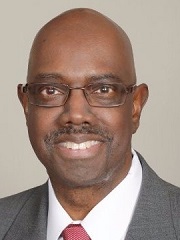Discovering your leadership superpowers and ‘origin story’ on the journey to becoming an effective leader
- Leaders should be on a continuous journey to discover their leadership superpowers.
- The author’s research has identified 12 leadership superpowers, with effective leaders generally mastering at least two and knowing how to tap into many others.
- Leaders also should be aware of their “origin story,” which sets the tone for how they will lead.
Superhero movies capture our imaginations and entertain us with ever-improving special effects and the age-old story of good versus evil. One of the most interesting components is the origin story, wherein heroes discover their superpowers and learn how to master or control them.
While watching a couple of the latest origin stories, I was reminded of an exercise we do in our leadership training classes called “Leadership Superpowers.” In this exercise, we examine the leadership styles of several of the exceptional leaders I’ve had the opportunity to meet, and we identify their leadership superpower. Class members are then charged with determining their personal superpower and explaining why they chose it.

Leaders should be on a continuous journey to discover their personal leadership superpowers. Each journey is different — just like no two superheroes have the same powers, no two leaders utilize their leadership superpowers the same way. I cannot lead like you and you cannot lead like me.
Identifying specific leadership superpowers
My research has identified 12 leadership superpowers. These abilities are non-industry-specific, and all leaders can use them to be successful. The best leaders usually master two or more and have a working knowledge of when and how to use many of the others.
Those 12 abilities fall into two categories: “who they are” and “what they do.”
Who they are. These abilities are innate or come naturally, although leaders can get better at them with training. The abilities in this category include:
- Humble
- Empathetic
- Visionary
- Risk-Taker
What they do. These are abilities that leaders can learn, develop and master over time. They include:
- Communicate
- Motivate
- Observe
- Empathy
- Storytelling
- Social leadership
- Reflection
- Coaching/mentoring
Examples we use in the class, include:
- Toby Cosgrove, MD, former president and CEO of the Cleveland Clinic. Cosgrove is a very humble person. He doesn’t take credit for his organization’s success but instead gives all the credit to the people who work with him.
- Laura Forese, MD, chief operating officer with NewYork-Presbyterian. Forese is a strong proponent of coaching and mentoring with people both inside and outside her organization.
I consider my superpower to be empathy. I like to connect and build relationships with the people I work with and meet.
The significance of the origin story
In addition to discovering and mastering their superpowers, superheroes also have an origin story. For example:
- Superman came from the planet Krypton, which has a higher level of gravity than Earth and thus allows him to fly despite Earth’s gravity. Our yellow sun gives him superhuman strength.
- Spider-Man was bitten by a radioactive spider, which gave him the ability to walk on walls and heightened senses. At a young age, he had to cope with the death of his uncle.
- Batman witnessed his parents being killed in a mugging, an event that eventually turned him into a vigilante with great fighting skills and stealthy movement.
Just like superheroes, all leaders have a leadership origin story: usually a defining moment in their lives that helped shape them into the leader they became. It could be overcoming a challenging situation, meeting a mentor or even coping with tragedy.
Knowing your leadership origin story is important because it defines you as a leader and directly impacts how you lead. This knowledge helps you understand your underlying beliefs and how you influence decisions, guide problem-solving and drive behavior across seemingly unrelated situations.
No one story completely defines a leader, but here are a couple of leadership origin stories I’ve found interesting in my interviews:
- Dave Raymond, founder of Sweet Baby Ray’s (SBR) barbecue sauce, grew up in a tough neighborhood in Chicago. His resilience helped him take a $2,000 investment and turn it into a market-leading product. Now owned by Ken’s Foods, SBR has a higher market share than its next four competitors combined, while Raymond still owns the catering portion of the business.
- Chris Van Gorder, CEO, Scripps Health, was working as a security guard at a hospital when he saw the CEO walking in his direction. He stood up straight and got ready to shake the man’s hand and say hello, but the CEO walked right past him like he wasn’t even there. Van Gorder decided that if he ever rose to a leadership position, he would treat his people differently, and he has lived up to that pledge.
My leadership origin story is similar. I was a tall, skinny, nerdy high school kid (before nerds were cool), but I didn’t let teasing by other students define me. I was determined to follow my own path and refused to let what others said be my truth.
Today, I treat people with respect and make sure I get to know co-workers by listening carefully to what they say and don’t say. This approach has helped me become the empathetic and effective leader I am today.





